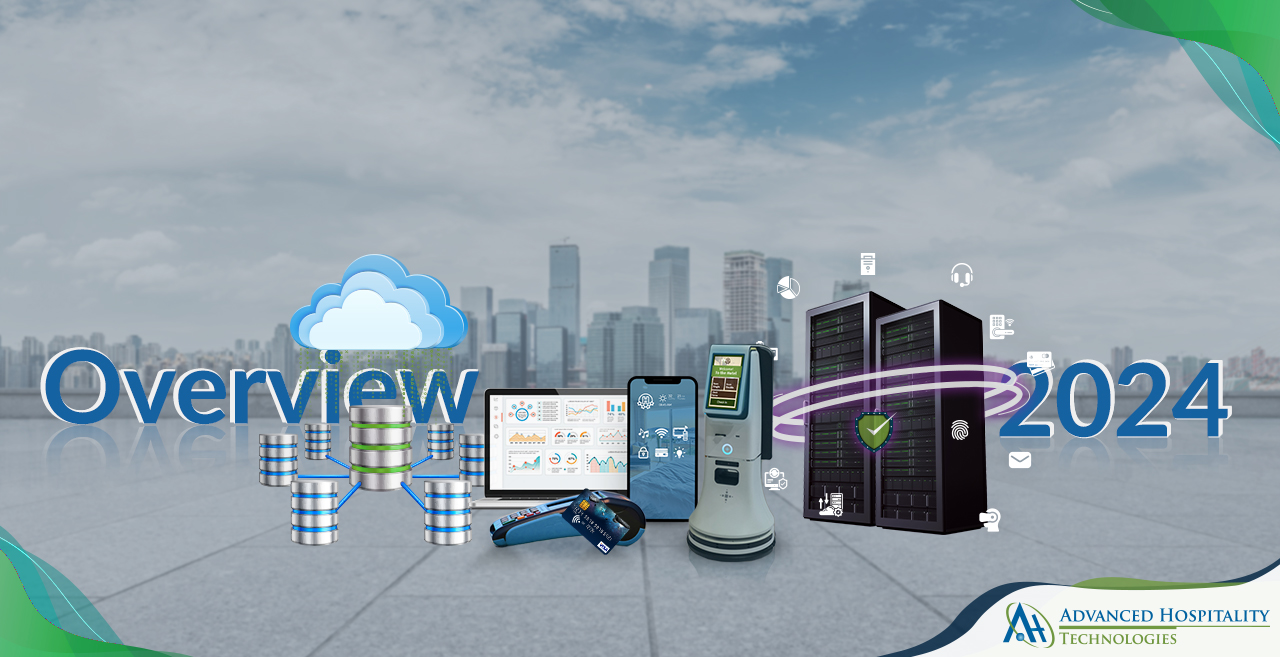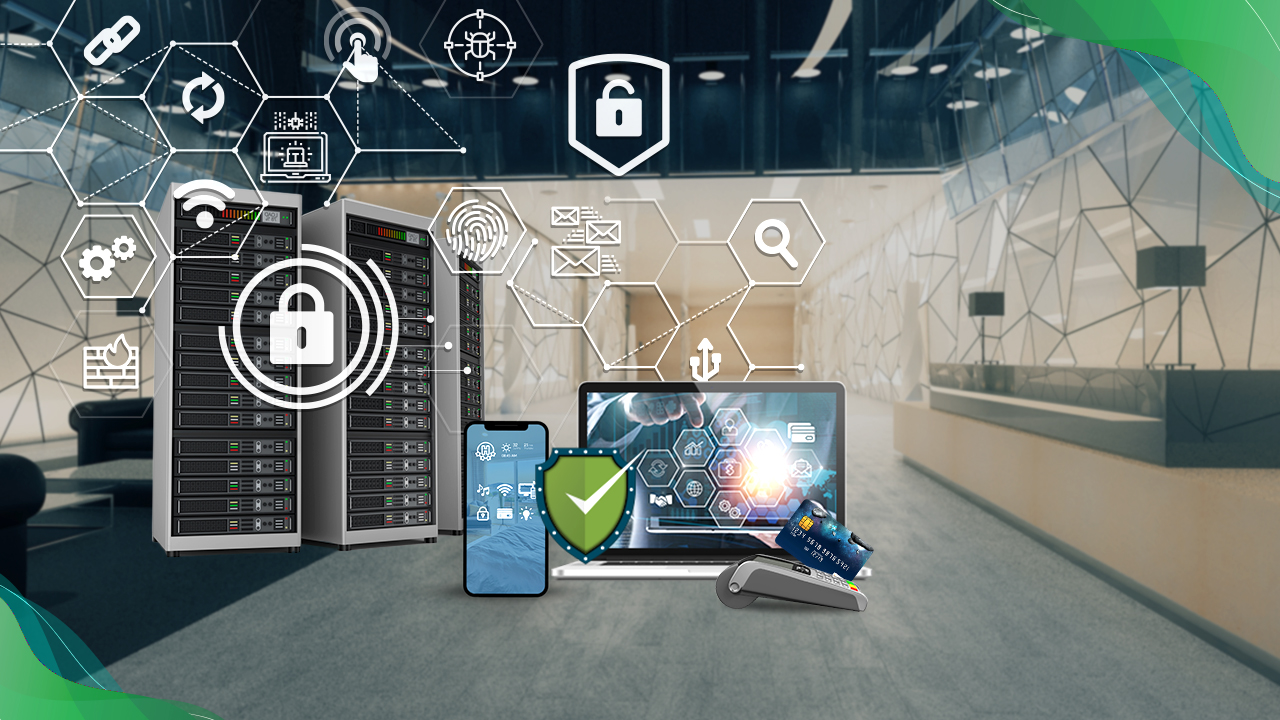Introduction
As we bid farewell to 2024, the hospitality industry stands transformed by unprecedented technological advancement. This year has witnessed a remarkable shift in how hotels and hospitality businesses operate, driven by the dual needs of enhancing guest experiences and improving operational efficiency. From artificial intelligence to sustainability initiatives, the industry has embraced innovation at every level, setting new standards for service delivery and guest satisfaction.
The Rise of Cloud Technology in Hospitality Operations
The adoption of cloud-based solutions has revolutionized how hospitality businesses manage their daily operations. Hotels are increasingly moving away from traditional software systems to embrace cloud technology, enabling seamless integration of various operational aspects. This shift has proven particularly valuable for properties managing multiple locations or dealing with complex booking systems.
Moreover, cloud platforms have significantly enhanced staff collaboration and communication. Teams can now access real-time data from anywhere, leading to faster decision-making and improved service delivery. For instance, housekeeping staff can instantly update room status, while front desk personnel can access guest preferences and history at a glance.
AI-Driven Service Enhancement
Artificial Intelligence has emerged as a game-changer in the hospitality sector this year. Hotels are leveraging AI-powered chatbots and virtual assistants to provide 24/7 guest support, handling everything from basic inquiries to complex service requests. These systems have significantly reduced response times while maintaining consistent service quality.
Furthermore, AI has revolutionized personalization in guest services. By analyzing guest data and behavior patterns, hotels can now offer tailored recommendations and services that align with individual preferences. This level of customization extends to room settings, dining suggestions, and activity recommendations, creating a more engaging guest experience.
Touchless Technology: The New Normal
The demand for contactless solutions has reached new heights in 2024. Hotels have responded by implementing comprehensive touchless systems that cover the entire guest journey. Digital check-ins, mobile room keys, and contactless payments have become standard offerings, reducing physical touchpoints while enhancing convenience.
Voice-activated controls in guest rooms have gained particular prominence this year. Guests can now adjust room temperature, lighting, and entertainment systems through simple voice commands, creating a more intuitive and comfortable stay experience. Additionally, these systems help reduce energy consumption by automatically adjusting settings when rooms are unoccupied.
Smart Room Technology and IoT Integration
The Internet of Things (IoT) has transformed traditional hotel rooms into smart, connected spaces. Hotels are now equipped with sophisticated sensors and devices that monitor everything from room occupancy to maintenance needs. This integration allows for proactive maintenance and improved energy management.
Smart room features have also enhanced the guest experience significantly. From automated curtains to intelligent lighting systems, these technologies create a more comfortable and personalized environment. Additionally, IoT devices help staff monitor room conditions and respond quickly to maintenance issues, ensuring consistent service quality.
Sustainability Through Technology
In 2024, technology has played a crucial role in advancing sustainability initiatives within the hospitality sector. Hotels are using sophisticated systems to monitor and reduce energy consumption, water usage, and waste production. Smart building management systems automatically adjust HVAC settings based on occupancy patterns, significantly reducing energy waste.
Digital solutions have also helped hotels minimize paper usage through electronic documentation and communication. Many properties have implemented mobile apps that allow guests to access all hotel information digitally, eliminating the need for printed materials. These initiatives not only reduce environmental impact but also appeal to environmentally conscious travelers.
Robotics in Service Delivery
The integration of robotics in hospitality operations has accelerated significantly this year. Hotels are deploying robots for various tasks, from cleaning and sanitization to room service delivery. These automated solutions have proven particularly valuable during peak periods, helping maintain service standards while reducing staff workload.
Robotic solutions have also enhanced the guest experience in unexpected ways. Many hotels now use robots for concierge services and guest assistance, adding an element of novelty to the stay experience. While human interaction remains essential, robotics has proven effective in handling routine tasks efficiently.
Looking Ahead: The Future of Hospitality Technology
As we look toward the future, it’s clear that technology will continue to shape the hospitality industry. The innovations we’ve witnessed in 2024 have set a new baseline for guest expectations and operational efficiency. Success in the coming years will depend on how well hospitality businesses can integrate these technologies while maintaining the human touch that defines exceptional service.
For hospitality professionals, staying informed about these technological advances is no longer optional but essential for survival in an increasingly competitive market. The key lies in finding the right balance between innovation and traditional hospitality values, ensuring that technology enhances rather than replaces the personal connections that make our industry unique.

Kazim Raza Ahmed is Research Analyst and Content Strategist at Advanced Hospitality Technologies, A pioneering IT Solutions partner in the hospitality industry. Being a content creator Kazim is dedicated to publishing material keeping pace with the rapid technological developments in the hospitality industry.




